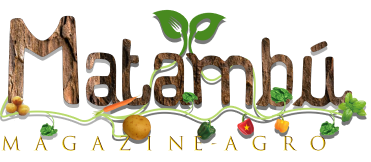[ad_1]
South Africa remains to be sending a lot of its surplus food to landfills or incinerators whereas extra and extra South Africans discover nutritious meals unaffordable.
“It’s time for a different approach to addressing food insecurity,” says FoodForward SA managing director Andy du Plessis. “There is a relatively untapped opportunity in terms of using quality, edible surplus food – food that is good for human consumption – but because of supply chain dynamics, liability issues, and market forces, this good food is either dumped in landfills or incinerated, causing a negative impact on the environment.” His remark comes at a time when the world might be going through its worst stage of food insecurity in latest historical past, in keeping with the World Economic Forum Global Risk Report 2022.
Worldwide, greater than 200 million individuals face starvation every day. In South Africa, as many as 15 million persons are affected by starvation, and this quantity is anticipated to worsen as the price of food continues to rise.
“Rising food prices are a clear indication that access to basic foods is worsening for those with limited or no income – commonly referred to as money-metric poverty,” says FoodForward SA in a press release. “This also means that those in need will not be able to afford nutritious foods, which has several health and economic implications.”
Basic food costs are skyrocketing
The non-profit performed its personal food worth comparability evaluate between 2021 and 2022, and it exhibits that fundamental food costs have elevated by 12,9% in the previous 12 months alone.
Food classes have gone up considerably, with recent fruit up by 62%, recent greens up by 9,3%, cereals up by 23%, grains up by 12,2%, and spreads up by 34,5%.
“Countries with deep pockets have more leverage and are in a better position to negotiate preferential treatment,” says Du Plessis about totally different nations throughout the globe navigating worldwide food safety crises. “That leaves developing and under-developed countries to fight it out for what’s left, which artificially increases the prices of these commodities because demand is greater than the supply.”
South Africa is thought to be a food-secure nation on nationwide stage however food insecurity is rife at family stage as a result of . FoodForward SA has been lobbying for producers and retailers to channel unsold surplus meals to food-insecure South Africans since 2009.
In a separate growth, the South African Food Loss and Waste Voluntary Agreement was additionally launched in September 2020 by the Consumer Goods Council of South Africa (CGCSA) in partnership with the nationwide departments of forestry, fisheries and the surroundings, and commerce, trade and competitors. It commits food producers and retailers to lowering food waste alongside the provide chain. Despite this traction, extra can nonetheless be completed, FoodForward SA believes. “South Africa needs to take urgent action to address the food security crisis, or risk increasing social instability that could lead to a repeat of unrest like the 2021 KZN riots.”
[ad_2]










